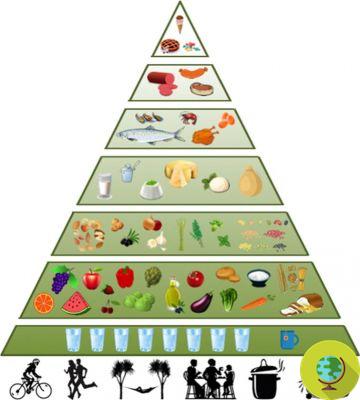Many people around the world are living longer and healthier lives thanks to improvements in their nutrition
Don't store avocado like this: it's dangerousMany people around the world are living longer and healthier lives thanks, in large part, to improvements in their nutrition. A new study has tested a particular diet to support longevity.
We all know that the protection of our health and the prevention of many diseases begins at the table, with the choice of fresh and healthy food and the preparation of balanced meals. The strong link between nutrition and longevity continues to strengthen through studies and research that highlight how different types of diet can naturally counteract the onset of certain diseases.
A recent study conducted compared different diets - the Mediterranean diet, the Japanese diet, the vegetarian diet and the Nordic diet (rather similar to the Mediterranean one, but characterized by the presence of fish and other foods typical of the North of the world), which are widespread. traditionally in various areas of the planet - to try to understand which of these is actually able to extend people's life expectancy - even if, it is good to always remember, an elixir of life has not yet been invented. The researchers simply analyzed and compared the effects of various types of diets on the reduction of genetically non-communicable diseases - such as cardiovascular problems, chronic respiratory diseases, cancers and diabetes.
It turned out that it is ours Mediterranean diet, typical of the Mediterranean basin but appreciated and praised all over the world, the one that has the greatest health benefits and promises a longer life expectancy. The Mediterranean diet (from the Greek word δíαιτα - lifestyle) is much more than a simple diet: it represents a melting pot of knowledge, habits and traditions that have historically spread in all those regions overlooking the so-called Mare Nostrum. At the base of the Mediterranean diet there are foods of vegetable origin - such as olive oil, legumes, cereals, fruit and vegetables; the diet also includes moderate amounts of fish, poultry and dairy products and a more limited consumption of red meat, sweets and animal fats. The food pyramid allows you to better understand which foods are to be consumed more frequently and which are to be consumed less often:

Credits: Mediterranean Journal of Nutrition and Metabolism
The Mediterranean diet provides for a sustainable coexistence with the natural environment, with respect for the seasonality of natural products, the cycle of crops, the territory and biodiversity. For this reason, this diet is a model of a healthy and sustainable diet - which is good for us and for the planet.
As for the positive effects on health, there are numerous studies that testify the positive effects of this eating style on longevity and disease prevention, thanks to the presence of particular foods. For example, extra virgin olive oil, unlike other fats of animal origin, improves the fluidity of the cell membrane and lowers the levels of triglycerides in the blood. Typical fruits and vegetables of the Mediterranean scrub contain numerous vitamins that have a strong antioxidant and anti-inflammatory power and perform a regulatory function of the metabolism, acting on the insulin response; in addition, they are rich in fiber which is essential for the good functioning of the intestine.
Fonte: Mediterranean Journal of Nutrition and Metabolism
We also recommend:
- Green Med: the "green" Mediterranean diet promoted with flying colors by scientists
- Single course diet: what it is, typical menu, how it works and contraindications
- The vegan diet is better for losing weight and lowering cholesterol than the Mediterranean diet. I study


























